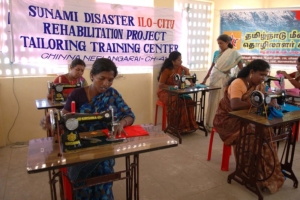Repurposed EV Batteries: A New Solution to Poverty in India
 The current population of India makes up almost 18% of the world’s total population. Consequently, India’s poverty rates significantly influence global poverty rates. Between the years 2011-2019, India has made substantial strides to reduce its poverty rates. Indeed, urban poverty has been reduced from 14.2% to 6.3%. Furthermore, in rural areas, the decline was from 26.3% to 11.6%.
The current population of India makes up almost 18% of the world’s total population. Consequently, India’s poverty rates significantly influence global poverty rates. Between the years 2011-2019, India has made substantial strides to reduce its poverty rates. Indeed, urban poverty has been reduced from 14.2% to 6.3%. Furthermore, in rural areas, the decline was from 26.3% to 11.6%.
This news deserves to be heralded as hundreds of millions of people have risen out of poverty. However, there is still much work to do, particularly in rural areas. Estimating rural poverty using 2019 poverty rates and 2020 data shows that about 105 million people in rural India still subsist on less than $2.15 a day.
Rural Poverty in India
Rural poverty in India contributes to high crime rates, low educational attainment, limited job opportunities and poor prospects for escaping poverty. It also restricts access to quality health care, leading to issues such as malnutrition and high infant mortality rates. According to Prime Minister Narendra Modi, India will be a “developed” nation by 2047 after leading the green revolution and excelling in technology, which will ultimately boost the country’s economy. A thriving economy is one thing, but this goal requires proper consideration of the poorest people in rural India. Therefore, more needs to be done to lift rural areas out of poverty in India.
Repurposing EV Batteries
An example of alleviating poverty in India involves repurposing old electric vehicle (EV) batteries to improve manual work efficiency. According to AP News, Nunam, an energy storage company, provided six women in Kenchanahalli with a repurposed EV battery. Previously, they relied on an unstable electrical grid for their tailoring tasks. The women resorted to hand stitching during outages, which often made it impossible to complete orders on time.
AP News reports that these women’s lives have dramatically transformed in the four years since this effective energy source was provided because they are now able to work fewer hours and receive a more consistent wage. Additionally, by reusing these batteries, millions of tonnes of waste that this cleaner-than-fossil-fuels energy source would have produced are avoided.
India has set the ambitious goal of producing 500 gigawatts of clean energy by 2030. The aim is to make the country a global hub for the manufacturing of renewable energy sources like solar. However, it has been reported that India could produce an estimated 340 kilotons of solar power-related waste by 2030.
Upscaling Nunam operations can utilize EV batteries that are no longer suitable for storing solar power into batteries that enhance efficiency in labor-intensive jobs, thereby helping to reduce poverty in rural India. This company’s primary business is reengineering these batteries to give rural Indian towns backup power. Recently, Nunam has experienced an enormous spike in orders, yet there remains a vast untapped potential.
Future Outlook
On a national scale, this effort has significant economic and environmental potential. It can assist in strengthening the economy by lowering dependency on imports such as lithium. Upscaling these processes will create new jobs in the reengineering of these batteries. This type of activity can advance education in rural areas by requiring local technicians with higher levels of expertise. Expanding these initiatives at the regional level will also empower small businesses, like the women in Kenchanahalli, thereby improving living conditions in these rural communities.
Furthermore, since India is at the forefront of green energy, this project could help propel it into a “developed country status.” This can be accomplished by not only prevailing in the global clean energy manufacturing market but also having a well-thought-out recycling strategy that empowers the most impoverished communities from the bottom up. This dual solution that promotes clean energy and empowers India’s poor has vast potential to bridge the gap between urban and rural poverty rates by tackling poverty at its roots.
– William Pickering
William is based in Nottingham, UK and focuses on Technology and Solutions for The Borgen Project.
Photo: Flickr
